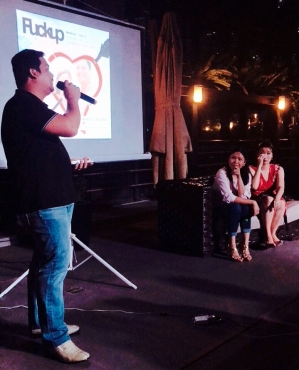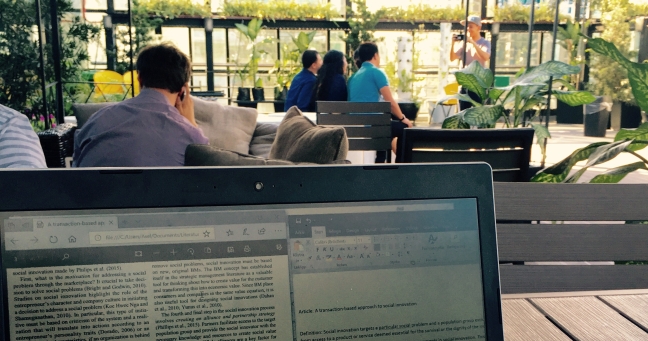We often hear stories about the one entrepreneur who embarks on a journey built on big dreams, hopes and hard work. We hear about the challenges and struggles that needed to be overcome along the way, and eventually about the successful birth of a company. It is often described as a lonely road, and while that is sometimes true, in almost all cases entrepreneurs and young companies do need support to develop and grow their ventures. This support can take many different shapes and forms. It might be access to funding, business expertise, mentorship or simply opportunities to expand their networks.
This support-environment is often called the entrepreneurial ecosystem. The ecosystem is made up of governmental, educational and financial institutions, but also actors such as accelerators, incubators, private investors, forums and other support organizations. It also involves elements such as human capital, knowledge, resources and the entrepreneurs themselves. Furthermore, the ecosystem is defined by its stories and culture. An effective ecosystem should be rich in social capital and encourage collaboration, cooperation, trust and reciprocity among the different players.
In our research, we are looking at how the ecosystem can better support the growth of social enterprises in the Philippines. In many cases, these social enterprises operate in an environment that is more scarce in resources compared to conventional, profit-driven, companies. For example, it is often harder to attract funding as well as talent since profit maximization is not the main goal. One can therefore argue that the supportive ecosystem play an even more important role in the context of social entrepreneurship. The ecosystem can enable and facilitate the scaling of social enterprises, and assist them to achieve both financial sustainability and their social mission.
Last week we met with ImpactHub Manila, one of the actors in the ecosystem. They offer co-working space, incubator programs and frequently organize events and network opportunities. To describe them in the most simple way; they connect people. They make sure entrepreneurs get opportunities to get in touch with investors, representatives from different organizations and other key players. But perhaps most importantly, they provide a space where people can interact in informal ways over a cup of freshly brewed coffee (which of course is free in whatever quantities you prefer). That is how relationships are built and ideas develop.
 We had the privilege to spend the whole day there, and as it happened an event labeled “fuck up night” was organized in the evening on their outside terrace, overlooking the skyline of downtown Manila. The concept actually originated in Mexico and is all about demystifying and normalizing failure. Entrepreneurs get on stage and in an informal, and often humoristic, way talk about their biggest failures, or fuck-ups, and how they managed to overcome them. The atmosphere was light-hearted, perhaps further reinforced by the craft beers on offer, since of one of the entrepreneurs on stage ran a microbrewery business. Before the night ended we also had new contacts engaged in businesses ranging from flowers in a box to dating apps to ice candy. What a night to be alive!
We had the privilege to spend the whole day there, and as it happened an event labeled “fuck up night” was organized in the evening on their outside terrace, overlooking the skyline of downtown Manila. The concept actually originated in Mexico and is all about demystifying and normalizing failure. Entrepreneurs get on stage and in an informal, and often humoristic, way talk about their biggest failures, or fuck-ups, and how they managed to overcome them. The atmosphere was light-hearted, perhaps further reinforced by the craft beers on offer, since of one of the entrepreneurs on stage ran a microbrewery business. Before the night ended we also had new contacts engaged in businesses ranging from flowers in a box to dating apps to ice candy. What a night to be alive!

